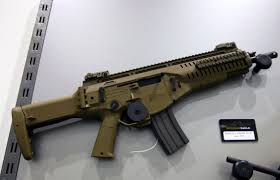
Introduction
The topic of weapons is more relevant now than ever as nations grapple with the implications of advanced armaments on global security. As conflicts arise and tensions escalate, understanding the dynamics of weapons technology becomes crucial for policymakers, military strategists, and the general public. This article examines current events and trends in weapon development, alongside their potential impact on international relations.
Recent Developments in Weapons Technology
In 2023, various countries have demonstrated significant advancements in weapons technology. For instance, the United States recently unveiled a new generation of hypersonic missiles capable of traveling at speeds greater than Mach 5. This technology, which poses a challenge to existing missile defense systems, has raised concerns among allies and adversaries alike about an arms race in hypersonic capabilities.
Meanwhile, autonomous weapon systems are another critical area of development. Renowned defense manufacturers are investing in AI-driven drones and ground systems capable of executing missions with minimal human intervention. The application of these autonomous systems has prompted discussions regarding ethical guidelines and regulations in warfare. As countries compete to deploy these technologies, the potential for unintended consequences grows.
International Treaties and Agreements
In response to the advancements in weaponry, global efforts for arms control and regulation are also evolving. The Treaty on the Non-Proliferation of Nuclear Weapons (NPT) remains a cornerstone of international efforts to prevent the spread of nuclear arms. The recent conference for the NPT re-examination has highlighted the need for enhanced dialogue among nuclear and non-nuclear states to ensure long-term global security.
Moreover, discussions around increasing transparency and accountability in arms sales are ongoing. Following a series of regional conflicts exacerbated by the proliferation of small arms and light weapons, the United Nations has been advocating for stronger measures to control arms trades. The Arms Trade Treaty (ATT) serves as a legal framework, garnering attention as nations assess their commitment to responsible arms trading practices.
Conclusion
The complexities of weapons technology and its implications for global security cannot be underestimated in today’s geopolitical climate. As states implement advanced weaponry in their arsenals, the stakes are high for international peace and stability. Future dialogues regarding arms control, ethical standards for autonomous systems, and measures for responsible arms trading are essential to mitigate risks. For citizens around the world, staying informed about these developments and their potential consequences is crucial as they influence not only national security but global relations as well.



